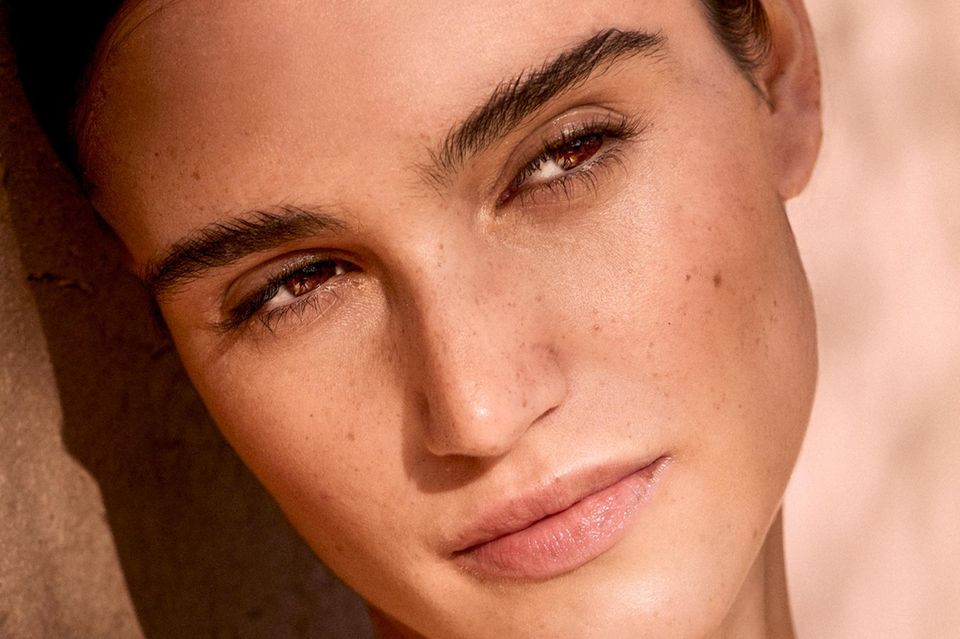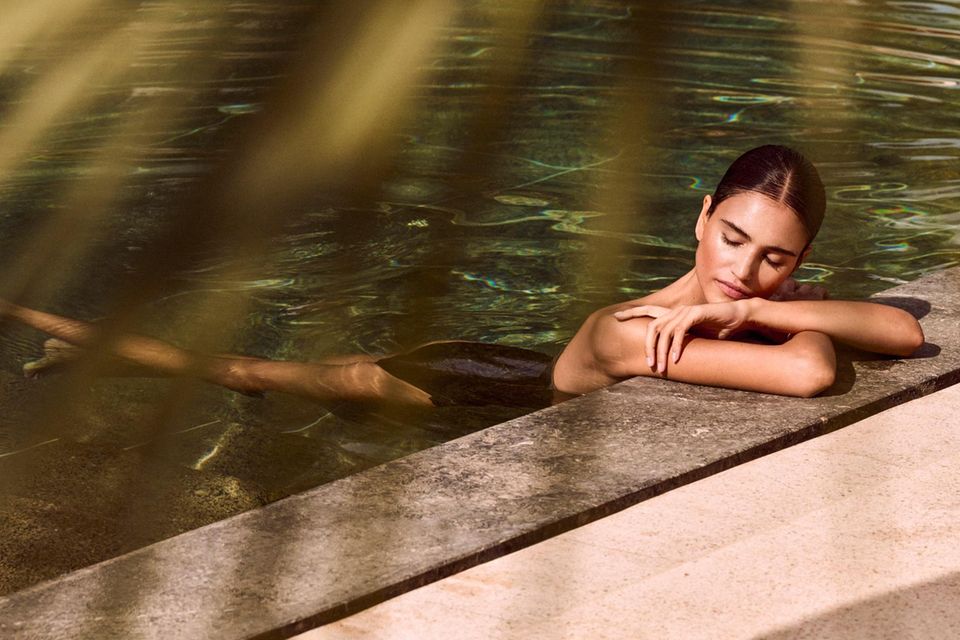Sunscreen Questions to the Experts
Is the UV protection in day care and make-up sufficient?
If you are exposed to strong sunlight, you should ensure adequate protection intensity.
© Jan Rickers
In addition to beauty and care products with UV protection, the use of additional sunscreen is still widespread. But where is the difference?
Judith Kriener
How is it looking? Did you use sunscreen during the last bright days? Or do you automatically resort to day care because it protects properly with SPF 30 or even 50? So much in advance: Both strategies make sense. Or as Prof. Jean Krutmann, dermatologist and director of the Leibniz Institute for Research in Environmental Medicine puts it:
First of all, the best sun protection is the one that you actually use.
However, with the variety of products, which are also becoming more and more similar, it is easy to lose track: here sun creams with care benefits such as anti-aging ingredients, there care and make-up with UV filters. Do we need both? And if so, when and what?
Sunscreen vs. UV protection in day care and make-up
Being aware of the main tasks of a product helps, because its formulation is based on these. So with a day cream, even if it has a high sun protection factor, the caring effect always comes first. In the case of make-up professionals such as foundation or powder, it is above all their cosmetic skills that count.

Beauty products with UV protection or rather sunscreen – we will examine the differences.
© Jan Rickers
A special sunscreen, on the other hand, is primarily aimed at the defense function: “It should provide efficient and long-lasting protection against UVA and UVB radiation and thus have a preventive effect against skin aging and skin cancer,” explains Dr. Dominik Göddertz, Head of Development Nivea Sun. A strong filter against the more deeply penetrating UVA rays, for example, is still more likely to be found in sunscreen than in day creams and make-up.
Combining day care and sunscreen – lasts twice as long?
The idea that you are better protected against UV rays if you put different filters on top of each other is stubborn – but unfortunately wrong. According to dermatologist Dr. Sabine Zenker, who also advises L’Oréal, the protection only corresponds to the highest applied sun protection factor.
Protection does not stack when we layer products, such as a day cream with SPF 15 and a sunscreen with SPF 50.
In the example given, the sun protection factor is accordingly 50. And: By the way, no sun protection filters help against the free radicals released by the sun’s rays, which attack skin cells and thus contribute to aging, but rather the famous antioxidants, which were originally more likely to be found in care products .
According to experts: These are the differences between the sun protection variants
- Only when the UVA seal is shown does the product offer at least a third of the UVB protection recommended by the European Commission.
- Dermatologist Prof. Jean Krutmann points out with this statement: Anyone who uses a sun protection factor of 20 to 30 every day actually keeps their complexion visibly younger for longer. Day creams or make-up with SPF that is applied in the morning effectively delay skin aging. When it comes to the sun protection factor, very regular use makes all the difference.
- If we show more skin on warm days, we can no longer avoid a special sunscreen – classic body lotions almost never contain UV filters, if only because they are very expensive.
- The vast majority of sunscreens for the body are waterproof so that they don’t wear out despite sweat, pool or sea water – as long as you top up regularly.
- In order to actually get to the specified SPF, a lot of product has to be applied – just for the face (including décolleté and neck) it takes about a teaspoon. This is possible with day care, but not with foundation or powder.
The expert does not recommend an SPF of 50+ for daily use in our latitudes: “You shouldn’t have too many UV filters on your skin if it’s not necessary.” We should always use 50+ when we Exposing ourselves to strong sunlight for longer – for example when strolling through the city.

When we sweat, get dressed and undressed, or bask in the water, sunscreen comes off. That’s why experts recommend topping up at least every two hours.
© Jan Rickers
Conclusion: This is how you choose the right sun protection
If you do sports outside in the warm season, sit lightly dressed in a café, go for a walk or lie on the lawn, you should not do without sunscreen. Otherwise you can decide according to personal preference: Foundations with SPF also smooth out the complexion, day creams with SPF are ideal for a regular anti-aging routine, sun creams are a safe bet.
